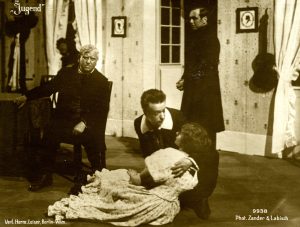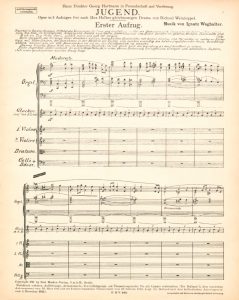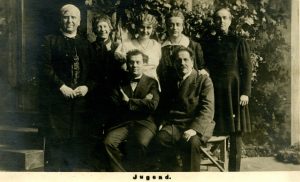One Hundred Years Since the Premier of Waghalter’s “Jugend” in February 1917

It was the evening of February 17, 1917. The European War that had begun in August 1914 had already claimed millions of lives. At the Deutsches Opernhaus in Berlin, the curtain rose for the premier of Jugend, the third opera by Ignatz Waghalter. Based on the naturalist drama of Max Halbe, the three-act opera tells the story of the doomed relationship of two young lovers, Hanns and Annchen. The work ends with Annchen’s death in an act of brutal and senseless violence. The opera resonated emotionally with the audience, which must have sensed a connection between what was occurring on stage and the tragedy in which all of Europe was engulfed. In his 1936 autobiography, Aus dem Ghetto in die Freiheit, Waghalter wrote that he composed the work at a time when he was profoundly distressed by the war. Waghalter, who conducted the premier, was, after each act, repeatedly summoned to the stage by the audience to receive its ovation.

The Berliner Tageblatt declared that “from a purely musical standpoint, Waghalter’s work deserves unreserved praise.” The critical consensus was that Waghalter’s well-known melodic gift had attained new heights.
For the next six years, Jugend maintained its hold on the Berlin public. Of all the operas that had received their premier at the Deutsches Opernhaus, it was the most frequently performed. But then, strangely, Jugend disappeared from the repertoire.
On April 22, 1989, the Deutsche Oper in Berlin, successor to the Deutsches Opernhaus, performed excerpts from Jugend with piano accompaniment. The performance was attended by Beatrice Waghalter Green, the daughter of the composer. Among the excerpts were the intensely moving duet between Hanns and Annchen, at the end of the Second Act, and the final great aria of Annchen
Fortunately, a recording of the performance was preserved. The role of Annchen is sung by soprano Katharina Richter. Tenor Clemens Bieber is heard as Hanns. Below are links to the intensely moving duet between Hanns and Annchen at the end of the Second Act; and the final great aria of Annchen and the opera’s tragic conclusion.

The Second Act duet of Hanns and Annchen:
Annchen’s final aria and Jugend’s conclusion:
Leave a Reply
You must be logged in to post a comment.